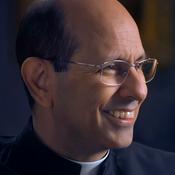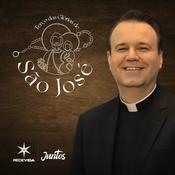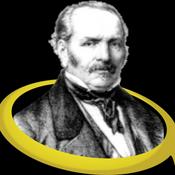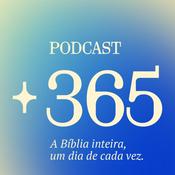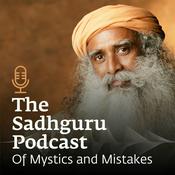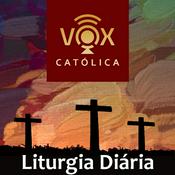Growing In God with Gary Hargrave
Gary Hargrave
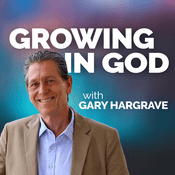
Último episódio
292 episódios
- Growing In God Podcast
Program Number: GIG #289
Title: Times of Refreshing
Web Description: We believe in the promise that there will be times of refreshing from the presence of the Lord. But when we look at our circumstances, we think, "This doesn't seem like refreshing to me!" That is the wrong focus because what precedes and initiates the times of refreshing is the fact that we repent and return to the Lord. Let us see the whole picture that includes our repentance as a positive progression into all that God wants us to have and be in Him.
Show Notes: The apostle Peter prophesied that there will be times of refreshing and restoration. And for many years now we have seen restoration happen in the Church. Many of the gifts, ministries, and experiences of the Holy Spirit have already been restored. Along with this restoration, we therefore anticipate the times of refreshing as well. Yet the devastating experiences we go through make it difficult to accept that we are in times of refreshing. We have to remember that this promise of restoration and refreshing occurs because we repent and return to the Lord.
One of the greatest chapters on restoration is Joel 2, where we also read about the outpouring of God's Spirit on all mankind. But how do the restoration and outpourings come about? They come about because people return to the Lord with weeping and mourning and rending of their hearts. We are not immune from this in our walk with God. The most important thing God is restoring is the personal relationship with Him on a level we have not known before. As we seek for that relationship, the Holy Spirit puts us in a place of being humbled before the Lord.
This process of repentance and humility is how we experience restoration and times of refreshing. And like Job, it is certainly easy to think negatively about what God leads us through in that process. But as with Job, God's purpose is to give us the times of refreshing. His goal is the positive work He will do for us and with us. His plan is to restore us to Himself as those sons of God who shouted for joy at His creation. That is why we keep our focus on Him and return to Him with all our hearts.
Key Verses:
• Acts 3:18–21. "Repent and return, so that your sins may be wiped away, in order that times of refreshing may come."
• Joel 2:12–13. "Return to Me with all your heart, and with fasting, weeping and mourning."
• Joel 2:28–29. "I will pour out My Spirit on all mankind."
• 2 Peter 3:9. "The Lord is … patient toward you, not wishing for any to perish but for all to come to repentance."
• Matthew 3:1–2. "John the Baptist came, preaching … 'Repent, for the kingdom of heaven is at hand.'"
• Matthew 4:17. "Jesus began to preach and say, 'Repent, for the kingdom of heaven is at hand.'"
• Job 38:1–7. "Where were you when … all the sons of God shouted for joy?"
Quotes:
• "The Spirit is poured sovereignly, but He rests comfortably where there is repentance, humility, and alignment to His will."
• "Real repentance is not shame driven. Shame says, 'Hide. You are unworthy.' Repentance says, 'Return. You belong to the Father. You belong to the plan of God for this hour.'"
• "Repentance is not punishment. It's a doorway back into the love relationship with the Father."
• "God will do whatever He needs to do to get us into His eternal purpose for our existence."
Takeaways:
1. According to Joel 2, what happens to prepare us for the global outpouring of God's Spirit and the new day of the Kingdom? It is the brokenness of our hearts and repentance that is a real return to the Lord.
2. We must follow the roadmap to the promised restoration and outpourings. There is a divine order to God's plan as He brings us in alignment with His way of thinking and His will.
3. God's process of humility is not to punish us. It is not to shame us. It is the path we walk on to a fully restored relationship with the Father. - Growing In God Podcast
Program Number: GIG #288
Title: What Does Scripture Say About Us?
Web Description: Are you confident that you always believe that God means what He says? What about when you read a Bible verse that tells you to be like Christ? If we are honest, we would admit that we have trouble accepting Scriptures about God's divine nature in us and what He expects us to be. Rather than skipping over such Scriptures, we should work at embracing them and applying them with all our hearts.
Show Notes: There are certain Scriptures that we find very difficult to take literally, especially when they challenge how we think about ourselves. When we read in John 17:23 that the Father loves us with the same love He had for Yeshua (Jesus), we tend to stop and ask, "Did He really mean that?" After all, how could God love us in our sinfulness with the same love He had for His Son? But God does mean what He says about us. God is bringing many sons to glory, loving them just as He loved Christ, who was the first born of many brethren.
When Yeshua was born, He could do nothing as a baby that He would do as a grown man. But He was already the Son of God, Savior, and Lord at His birth. He grew up to fulfill the purpose God sent Him to the earth to fulfill. And when we are born in Christ, He implants His divinity in us. Then our growth and maturity in Christ comes from this nature of Christ already within us. Just as Christ grew up into the fullness of the Father, according to Ephesians 4 we are to grow up into the fullness of Christ. Yet we resist accepting that about ourselves. Many even consider it heresy to say that we can be like Christ.
These Scriptures about who we are in God need to get through to us. We cannot simply skip over them or find other ways to interpret them because we have a hard time accepting what they say we are. We need to clearly see the purpose that God has for us and His equipping that matures us into who we are to be as full-grown members of the Body of Christ. That is why we have begun a project with the Fellow Workers. We are building a list of Scriptures that confront us about who we are and what God has put us on this earth to be. Join us in finding these Scriptures, meditating on them, and planting them in our hearts until they bear fruit in our lives.
Key Verses:
• John 17:23. "You sent Me, and loved them, even as You have loved Me."
• Romans 8:29. "He would be the firstborn among many brethren."
• Ephesians 4:11–13. "He gave … for the equipping of the saints … until we all attain … to the fullness of Christ."
• Luke 2:52. "Jesus kept increasing in wisdom and stature, and in favor with God and men."
• Hebrews 2:10. "It was fitting for Him, … in bringing many sons to glory, to perfect the author of their salvation."
• John 14:5–18. "The Father abiding in Me does His works."
Quotes:
• "It's that constant reality that is manifested in the now that we are what God brought us here to be. Is that maturing? Is it perfecting? Yes. But get out of the idea that you're becoming something different or that you need to become something different than what you are."
• "Our mind kind of blocks and parries this off so that we don't let it really hit us like it needs to hit us—that the Father is in Christ and the Father is in us and Christ is in us and we are one."
• "He wants us to be equipped. I think it's part of our relationship with one another because somewhere, in us and around us, abide these apostles, prophets, evangelists, pastors and teachers, brothers and sisters, and that which is bringing forth this process of maturing."
Takeaways:
1. God has chosen to be in this time just as He sent Christ to be in His time. So we need to find and come into connection with the reality of who we are and what our purpose is in this earth. And the Scriptures play an important role in that.
2. When we encounter a Scripture that seems too wonderful to believe about ourselves, we tend to interpret it in a way that lets us not take it at face value.
3. We must get out of this idea that we are working toward something or that we are doing a job out of dedication. Our work of service comes out of the divinity of the Father and of the Son that God has installed within us.
4. We need to be looking through the Scriptures and finding verses that confront us with the reality of who we are—that Christ and the Father are in us—and come to grips with what that means. - Growing In God Podcast
Program Number: GIG #287
Title: Seeing Him Who Is Invisible
Web Description: What is faith? According to Hebrews 11, faith is the evidence of things not seen. And men and women of faith saw God who is unseen and brought into this world His works that were unseen in their day. Let us be those whose faith does the same in our day. Instead of struggling to believe, dwell where you are seeing Him who is invisible and make His will visible in the earth.
Show Notes: Yeshua (Jesus) said, "All things you ask in prayer, believing, you will receive." Like many Scriptures, this statement challenges us. Did He mean that literally? Can we really believe that we will receive all things we ask for? Yes, we absolutely should believe that Yeshua meant what He said. But the purpose is to have the faith of those listed in Hebrews 11. These are our examples of the faith that is "the substance of things hoped for, the evidence in things not seen."
All things that are seen were created by God's Word from that which is unseen. Therefore, just as God manifested what was unseen into the visible world, these men and woman of Hebrews 11 were able by their faith to bring into the visible realm those things that exist in the invisible realm. And the whole intent of this chapter in Hebrews is to convey God's will for us. As we walk with God today in the earth, He is speaking to us to bring into the visible realm His completed works that exist in the invisible realm.
We often find ourselves struggling with doubt and unbelief. And the reason is that we are not experiencing what Moses experienced; he delivered Israel by "seeing Him who is unseen." Therefore, the faith of Moses was the evidence of the promise that was not seen. And if you are wanting evidence that what you are praying for is going to work, then start by seeing God who is invisible. See Yeshua who promised that His servants will be with Him where He is. Let us claim this ability and exercise it today.
Key Verses:
• Matthew 21:22. "All things you ask in prayer, believing, you will receive."
• John 17:23. "You sent Me, and loved them, even as You have loved Me."
• Hebrews 11:1 (KJV). "Faith is the substance of things hoped for, the evidence of things not seen."
• John 12:26. "Where I am, there My servant will be also."
• Hebrews 11:1–5. "What is seen was not made out of things which are visible."
• Hebrews 4:9–10. "There remains a Sabbath rest for the people of God."
• Hebrews11:13–14. "All these died in faith, without receiving the promises, but having seen them."
• John 5:19. "Whatever the Father does, these things the Son also does in like manner."
• John 8:26. "The things which I heard from Him, these I speak to the world."
• Hebrews 11:27–40. "He endured, as seeing Him who is unseen."
• Ephesians 2:10. "We are His workmanship, created in Christ Jesus for good works, which God prepared beforehand."
Quotes:
• "We are to enter into a Sabbath rest. In other words, we are to be able to manifest that which God has sent us here to manifest and to complete the work which we've been given to do."
• "Moses was seeing Him who is unseen. It doesn't mean that God is not seeable. It just means that in the natural material world God is not seen as a normal course of our existence. But Moses was moving in the natural world by seeing Him who is not seen in the natural world."
• "You can't make a miracle out of that which is seen. You make it out of that which is unseen. And the only way you can accomplish that is by seeing Him who is invisible. And when we see Him who is invisible, then that which is invisible manifests itself into this realm in which we live."
Takeaways:
1. According to Hebrews 11, just as God created what is seen out of what is unseen, our faith is about bringing what is unseen into the visible material realm.
2. We may not see the full manifestation of God's promises, but we walk by seeing Him who is invisible. And we do not waver in our purpose to make seen the things of God that are still unseen in the earth.
3. God has finished all His works, and we are looking for the city He created. It already exists, and we can see and dwell in it now in a very real way. But He is looking for us to bring into manifestation all that He wants to see happen in the age we live in. - Growing In God Podcast
Program Number: GIG #286
Title: New Year's Connection With Our Fellow Workers
Web Description: Elijah stood at the entrance of his cave with his awareness fixed on the Lord to hear how the Lord would direct him. And today we stand at the precipice of a new year, determined to stand before the Lord with an awareness of Him that hears His instructions, understands His directions, and applies them to our lives.
Show Notes: In a New Year's meeting with our Fellow Workers, we review the past year and look to the year ahead. Last year, Hargrave Ministries achieved significant progress in both the ministry of the Word and our outreach to Israel (see Israel Projects). And we are anticipating even greater progress this year. To that end we are updating the website to provide better access to the teaching materials and streamlining the donations to Israel. But in all we do, we want to be those who have the insight, as Daniel prophesied, to instruct people concerning God's purpose for them in this age.
The story of Elijah on Mount Horeb is a lesson on how to do that. The Lord told Elijah to go to a specific place, and Elijah obeyed. And our first step is to be in the place where the Lord is leading us. Then the story explains how God was not in the various manifestations Elijah witnessed as "the Lord was passing by." Elijah was not distracted by those things but waited until he received the specific instructions the Lord wanted him to follow. We too can be aware of all that is taking place in the world as the Lord is passing by. But our focus needs to be on the specific instructions the Lord has for us.
Like Elijah, we do not want our awareness of things, even if God is in them, to draw our focus away from what the Lord wants us to be aware of. Just as He told Elijah exactly where to go, who to see, and what to minister, we want our teaching material to impart more than a knowledge or understanding of the Bible. We need the insight—knowing both what the Lord wants us to do and how to do it. We have seen the success of this already in our ministry to Israel. And this year we look forward to even greater insight and application of the Word in people's lives.
Key Verses:
• Lamentations 3:22–23. "His compassions never fail. They are new every morning."
• 1 Kings 19:11–16. "The LORD was not in the wind."
• Daniel 12:8–10. "Those who have insight will understand."
• Daniel 12:1–4. "Those who have insight will … lead the many to righteousness."
Quotes:
• "Our awareness is something that we have to hold as a tremendous value. And we have to carefully guard it from that which wants to take it off into what God's not really wanting us focused on."
• "Our focus on Israel comes out of our understanding of the Word. And what we're doing in Israel is a manifestation of the understanding, the learning, and the insight that we have."
• "What do I want out of Hargrave Ministries this year? I want to see the instructors come forth in the earth. I want to see teaching that is the impartation of the how—not just knowledge—but how to move in it, how to do what God wants done in manifesting His Word and His purpose on the earth."
Takeaways:
1. This new year we are believing for awareness: awareness of what God is doing, what He is speaking, and how He is leading us.
2. This year we are looking for the teaching on our website to be more than knowledge of what the Bible says, but how to enter into what it says, and how to hold an awareness of what God is speaking until the manifestation of that comes in our lives.
3. A manifestation of this awareness would be those who will be instructors in this age—not instructors of a lot of information and knowledge, but of how to become what God is looking for.
4. This year our giving to Israel will emphasize the original vision of ministering to Israel as a whole. When you give to Israel through Hargrave Ministries, you will be giving to all of Israel and not just to a specific project. - Growing In God Podcast
Program Number: GIG #285
Title: Renewing Your Mind
Web Description: Imagine a recording continually playing in your mind, telling you how unworthy you are and how incapable you are of doing the will of God. This in effect is what takes place in our subconscious minds and works against what we are consciously trying to achieve. This podcast delves into the subconscious issues that we all face and offers some scriptural and practical solutions.
Show Notes: We know that Christ's sacrifice on the cross brought salvation to the world. We also understand that our salvation is not only spiritual but also includes our physical bodies. We have salvation for the purpose of growing, maturing, and being transformed into His image. We are to present our bodies as a living sacrifice and experience transformation by the renewing of our minds. That means we must break out of the limitations in our thinking that still hold us in bondage to this world.
Scriptural directives like, "Do not be conformed to this world" and "be transformed" are meant to be acted on. We are the ones who do them. And yet so much in religious thinking makes us content to just be hearers of the Word rather than doers of the Word. We are called to "prove what the will of God is." But religion is not known for proving things. That is what science does. And there is a concept that religion and science are at odds with each other.
When it comes to changing the conditionings and responses of our subconscious mind, which continue to hinder our growth, religious thinking has not been effective. On the other hand, recent scientific approaches to meditation have been very effective, even resulting in physical healing. It is not a matter of belief versus science. There are many limiting beliefs in our subconscious that are not the truth about what God says we are. So we reach into God to effectively remove these limitations.
Key Verses:
• Romans 12:1–2. "Be transformed by the renewing of your mind."
Mark 12:30. "YOU SHALL LOVE THE LORD YOUR GOD WITH … ALL YOUR MIND."
• Ephesian 4:13. "Attain to … the measure of the stature which belongs to the fullness of Christ."
• Romans 8:19–21. "The creation itself also will be set free … into the freedom of the glory of the children of God."
• Matthew 12:1–4. "He was transfigured before them; and His face shone like the sun."
• Philippians 2:12–13. "Work out your salvation with fear and trembling."
• 2 Corinthians 3:16–18. "We all … are being transformed into the same image."
Quotes:
• "When we're giving our bodies as a living sacrifice, when we're seeking Him, when we're walking with Him, we are looking for this transformation into His presence, into His image."
• "What we find is a lot of times our subconscious mind is not supporting what our conscious mind wants to do. It's not supporting where we want to go in life, and it's not supporting what we want to accomplish in life. And therefore, we find ourselves struggling."
• "We must break out of limited thinking that is holding us in bondage."
• "Put it on a scientific footing where you're literally reaching to do something and prove how it works and why it works and what it does."
Takeaways:
1. Paul tells us that our physical bodies should be presented to the Lord once we experience salvation. Salvation is the beginning of our journey, not the end.
2. Salvation begins the process of transformation in our lives for the purpose of proving the will of God in the physical world through our physical bodies. This transformation begins with the renewing of our minds.
3. This is a scientific process, not a religious process. And we do not want our religious concepts getting in the way of our growth and maturity in God.
4. Meditation has been a part of our teaching for years, and it has demonstrated its effectiveness in releasing people from the unconscious patterns that work against the will of God in their lives.
Mais podcasts de Religião e espiritualidades
Podcasts em tendência em Religião e espiritualidades
Sobre Growing In God with Gary Hargrave
"Growing in God Podcast" is a podcast dedicated to helping people understand God's great love, develop spiritual maturity, and experience life as fully devoted followers of Yeshua (Jesus).
The podcast provides insights and biblical studies that reflect the Hebraic roots of the Christian faith, as well as topics like sonship, discipleship, prophecy, prayer and intercession. It also tackles issues like anti-Semitism, lordship, and replacement theology from a biblical perspective.
Hosted by author, pastor, and Christian leader Gary Hargrave D.Litt., "GROWING IN GOD Podcast" presents the Holy Scriptures as the guidebook to experience a daily dynamic life of faith that leads to spiritual maturity — a process that requires time, focus, and commitment.
Site de podcastOuça Growing In God with Gary Hargrave, JesusCopy Podcast e muitos outros podcasts de todo o mundo com o aplicativo o radio.net

Obtenha o aplicativo gratuito radio.net
- Guardar rádios e podcasts favoritos
- Transmissão via Wi-Fi ou Bluetooth
- Carplay & Android Audo compatìvel
- E ainda mais funções
Obtenha o aplicativo gratuito radio.net
- Guardar rádios e podcasts favoritos
- Transmissão via Wi-Fi ou Bluetooth
- Carplay & Android Audo compatìvel
- E ainda mais funções


Growing In God with Gary Hargrave
Leia o código,
baixe o aplicativo,
ouça.
baixe o aplicativo,
ouça.

